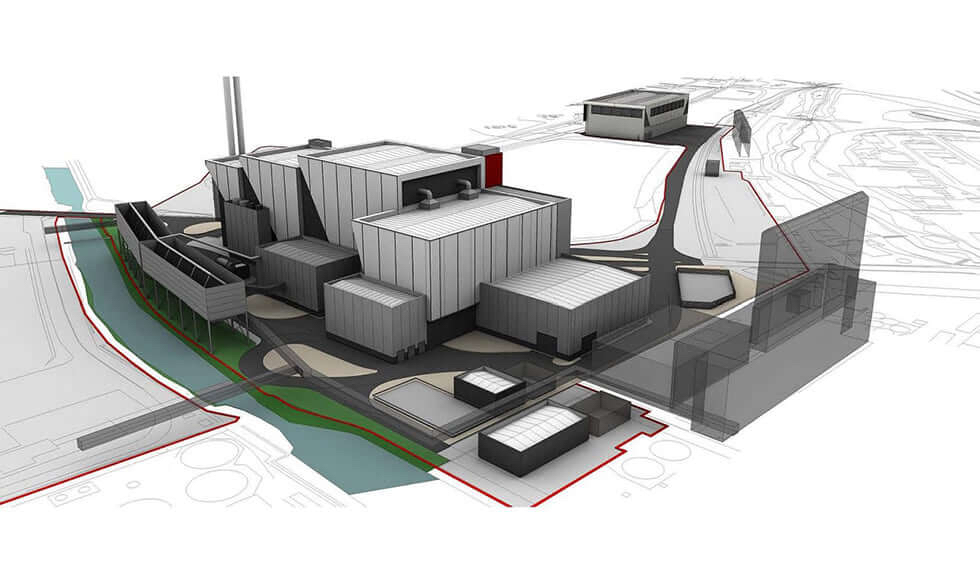The Manchester team of LDC have announced another addition to their inaugural contracts, hot on the heels of a number of project wins in their first few months of operation.

The latest project, will see them provide fit out and construction expertise to the vital Lostock Sustainable Energy Plant in Cheshire.
The Lostock Sustainable Energy Plant (Lostock SEP) is a £480m energy from waste (EfW) facility located at the Lostock Works site near Northwich in Cheshire. Once complete, it will recover energy cleanly and safely from refuse-derived fuel (RDF) – the residual waste left over after reusable and recyclable material has been removed.
Appointed by The Carey Group, a leading family-owned engineering and resource recovery business, LDC will initially deliver the high quality fit out of a new three storey office space and two storey workshop. This will be followed by the provision of office space 7,100 square feet along with toilets, showers and storage within in two buildings on the site.
The scheme comprises three distinct components covering the three floors. The ground floor will be fitted out with full shower, changing and toilet facilities along with a laboratory and associated office, safety room and main entrance reception area. The first floor will feature segregated office space with meetings rooms.
This will include an operations meeting and conference room, separated by a folding acoustic partition wall as well as a multi-use facilities room for larger meeting/conferences. Additionally a fully integral canteen, WC including a DDA WC and records room incorporating the communications cabinets, will be provided. On the second floor, additional office space will be created with meeting rooms WC, including DDA WC, along with a fully integral canteen. All floors will be finished with quality vinyl flooring and decoration throughout with new power, data, ventilation and lighting.
Phil Eastment, Head of Delivery, The Carey Group, said, “The appointment of LDC reflects the diligent, detailed and professional approach we’ve consistently witnessed with their team. This project is vital to the local area as it is set to generate enough energy to power approximately 125,000 homes per year, by cleanly converting residual waste – materials that are not re-usable or recyclable – into energy. Additionally, it will also contribute further to sustainability by diverting a substantial amount of waste from landfill.”
